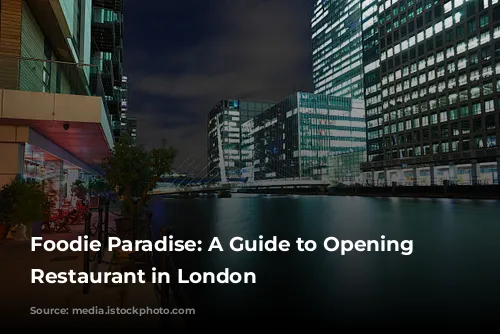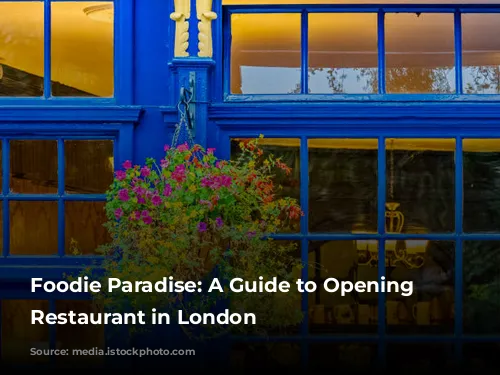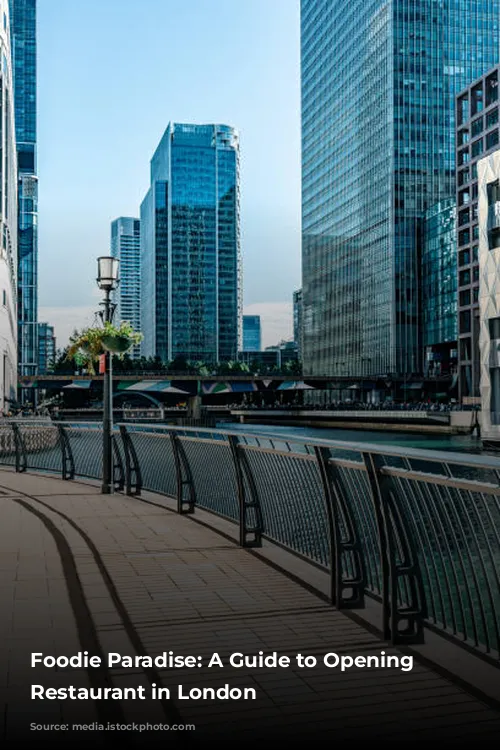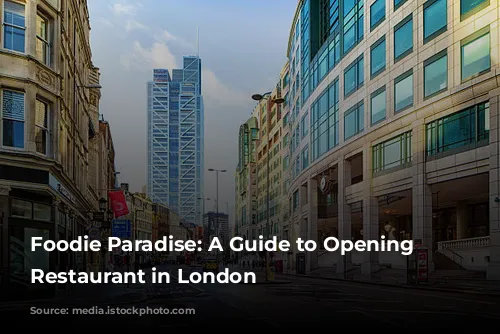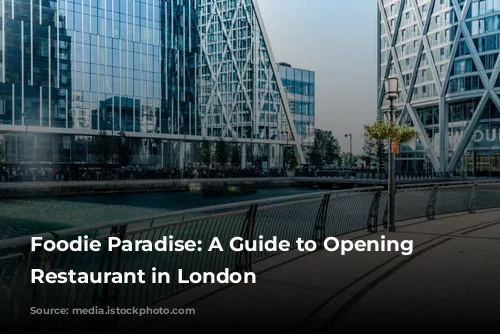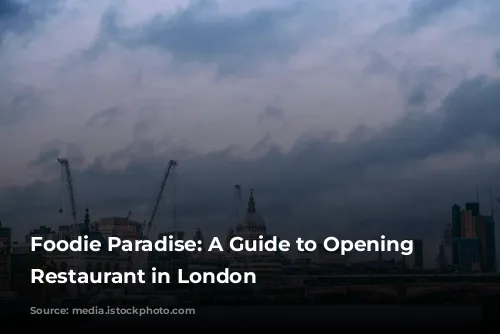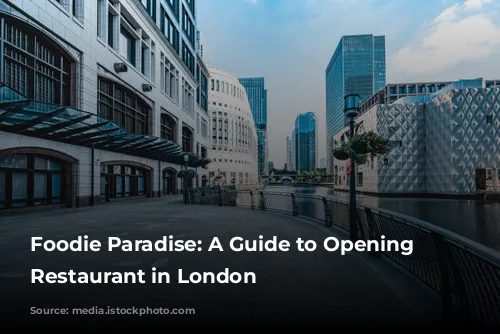London, the capital of the United Kingdom, is a culinary wonderland. It boasts some of the most cutting-edge and inventive restaurants in the world, from the unique Dans le Noir in Clerkenwell, where diners experience a meal in complete darkness, to the menu-less Restaurant Story, which serves up personalized dishes based on each customer’s preferences. However, this vibrant food scene comes with its own set of challenges. With fierce competition and sky-high rents, opening a restaurant in London, whether it’s your first venture or your third, is no walk in the park.
This guide will provide you with a comprehensive overview of the essential steps involved in successfully opening a restaurant in the UK’s capital, addressing everything from navigating licensing requirements to overcoming the current skills shortage.
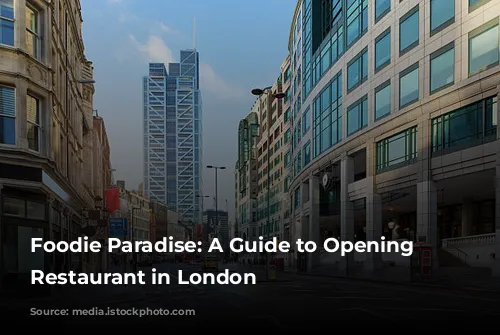
Navigating Licensing and Regulations:
Before you can open your restaurant doors, you’ll need to obtain the necessary licenses. Just like any other business in the UK, a restaurant in London requires specific permits to operate. These are crucial for both ensuring legal compliance and creating a safe environment for your customers.
First and foremost, you’ll need a Food Business Registration License. This is a mandatory requirement for all food-related businesses, including the preparation, storage, and serving of food at your premises. Next, you’ll need Food Business Approval from your local council, specifically for establishments serving fish, meat, eggs, or dairy products. This approval is usually required only once for each establishment. However, if you’re operating a vegan-only restaurant or if food makes up less than 25% of your business (e.g., a bookshop with a small cafe), you may be exempt from this requirement.
Remember to apply for these licenses at least 28 days before your planned opening date.
If you’re planning to create a more immersive dining experience, you might also need to obtain a Premises License. This license is crucial if you intend to sell alcohol, offer live music, host dancing events, or feature live performances.
Additionally, if you’re looking to keep your restaurant open later into the night, you’ll need to apply for a Late Hours Catering License. Issued by your local council, this license allows you to serve food or drinks between 11 pm and 5 am.
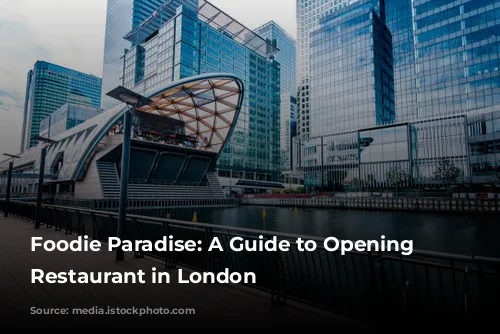
Tackling the Skills Shortage:
The post-Brexit landscape has created a skills shortage in the catering and waiting industries in London. Previously, restaurants and hotels heavily relied on European workers. However, new regulations have made it more difficult for EU nationals to work in the UK, with many returning to their home countries or seeking employment elsewhere in the EU.
This shortage is not solely attributed to Brexit, but also stems from a national decline in interest in the catering industry. Many young people perceive it as low-paying, overlooking the diverse range of income opportunities within the sector.
To navigate this challenge, consider opening a high-volume casual restaurant. These establishments are often popular with budget-conscious customers and typically require less skilled staff, making them more affordable to run and easier to find employees for. Implementing effective table management, a robust booking system, and QR code menus can help streamline service and ensure customer satisfaction.
However, if your heart is set on a chic, fine-dining restaurant, you’ll need to offer competitive wages and salaries to attract top-notch talent. Invest in a top-tier point-of-sale system and other hardware to ensure smooth transactions and exceptional customer service.
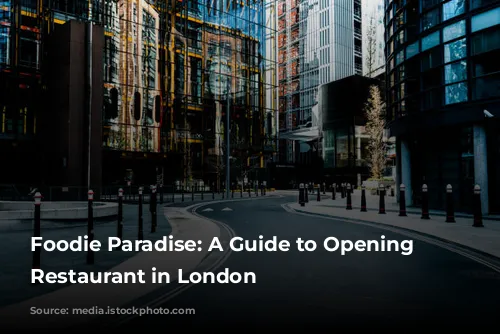
Location, Location, Location:
Your chosen location will significantly impact your rental costs and the type of clientele you’ll attract. Carefully analyze your budget and target market before deciding on a London borough.
For example, if you’re targeting business professionals, consider setting up shop near offices or tube stations. The City of London is an ideal location for this type of clientele. If you’re aiming to draw in tourists, you might prefer to open your premises in Piccadilly Circus or Westminster.
Some of the most desirable, but expensive, locations for new restaurants include:
- Mayfair: This affluent area attracts high-spending customers who are willing to splurge on a quality dining experience.
- Chelsea: Known for its sophisticated vibe, Chelsea offers a mix of fine dining establishments and casual cafes.
- Notting Hill: This charming neighborhood attracts a diverse clientele, including families, tourists, and locals.
While these areas may come with higher rental costs, don’t let that discourage you from opening a chic and high-end restaurant. People are willing to travel for a worthwhile dining experience, and these neighborhoods are constantly evolving and becoming trendier, similar to Hackney’s transformation in recent years.
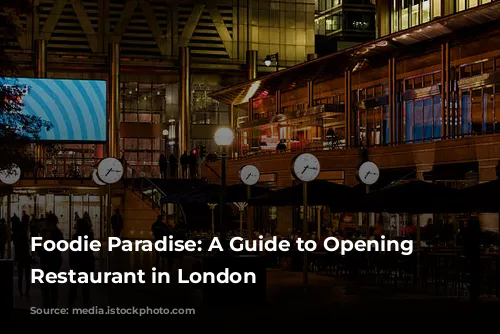
The Future of London’s Restaurant Industry:
The UK’s restaurant industry is a multi-billion pound powerhouse. According to Statista, the sector is projected to generate a revenue of 35.55 USD by next year. Despite the impact of the Covid-19 pandemic, which forced many smaller businesses to close permanently, industry trends suggest a full recovery by 2024. This rebound has been partly fueled by the surge in food delivery services.
This optimistic outlook bodes well for aspiring restaurateurs, particularly in London. The city’s residents have higher disposable incomes and are more likely to dine out frequently.
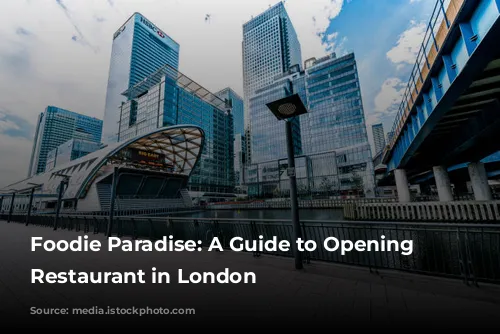
Financial Considerations:
While opening a restaurant in London presents exciting opportunities, success is not guaranteed. Profit margins and the time it takes for a new establishment to break even vary widely. Average profit margins (gross profit) typically range between 0-15%, with an average of 2-5%. This means opening a restaurant in London involves a certain level of risk. However, with thorough market research and adequate financing, your restaurant can turn a substantial profit.
Setting up a restaurant in London comes with substantial costs. Accounting for property charges, premises costs, interior renovations, staff onboarding, market research, and various other expenses, you can expect to spend at least several hundred thousand pounds. The exact amount will vary depending on the type of establishment you envision.
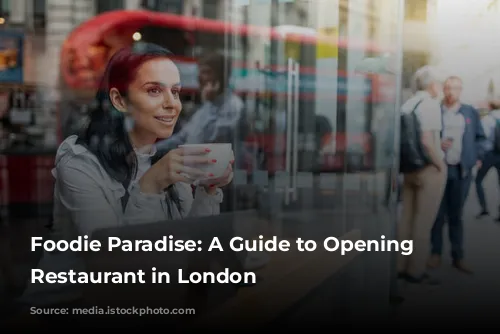
London vs. Other UK Cities:
Many aspiring restaurateurs ponder the question: “Is it difficult to open a restaurant in London?” If you’re considering opening your establishment in London versus another UK city, here’s a breakdown of the pros and cons:
Pros of Opening a Restaurant in London:
- Access to a large pool of skilled workers: London is a diverse city, offering a vast pool of talent to choose from for your staff.
- Excellent support from local authorities: London councils provide resources and guidance to new and small businesses, including access to business advice and affordable premises.
- A large and diverse customer base: As a global financial and cultural hub with six international airports, London offers a constant stream of potential customers seeking a good meal.
- Opportunities for growth: If your first restaurant is successful, there are numerous opportunities to expand and open additional locations across the city.
Cons of Opening a Restaurant in London:
- Highly competitive environment: London is a saturated market, with countless eating establishments vying for attention. It can be challenging to stand out from the crowd.
- Expensive rents: London is the most expensive place in the UK to start a restaurant business, with significantly higher rental costs compared to other cities.
In conclusion, London’s restaurant scene is a vibrant and exciting landscape, brimming with opportunity. However, navigating licensing requirements, tackling the skills shortage, and making strategic location decisions are essential for success. With careful planning, a well-defined concept, and a passion for food, you can make your mark in London’s culinary world.
